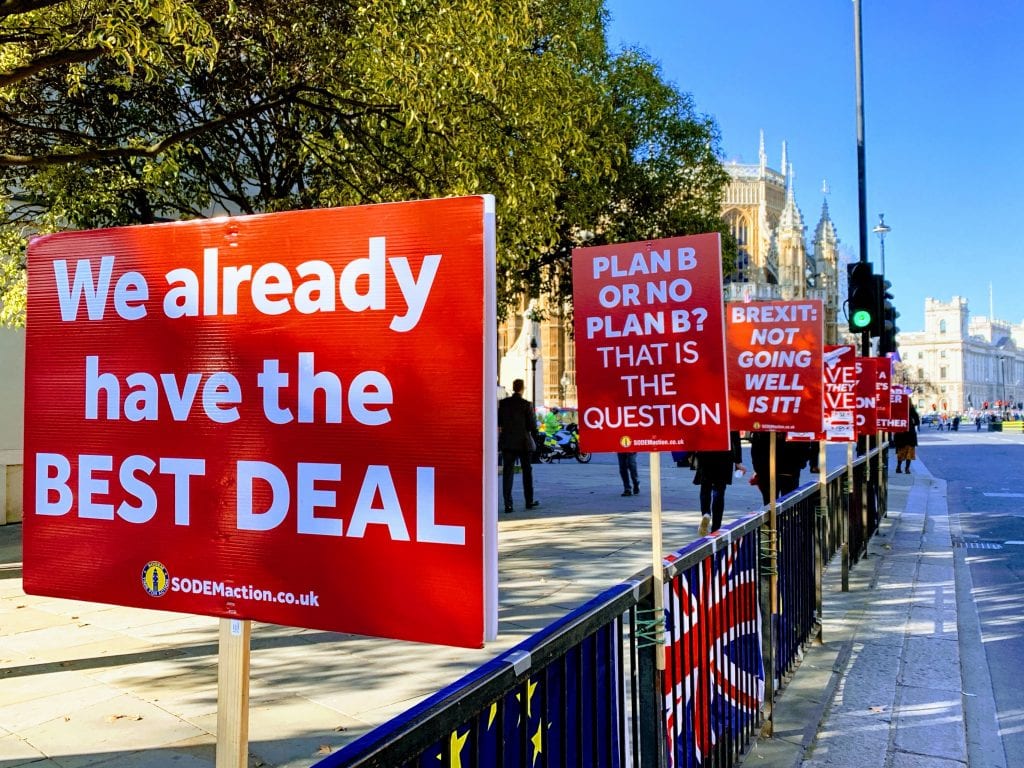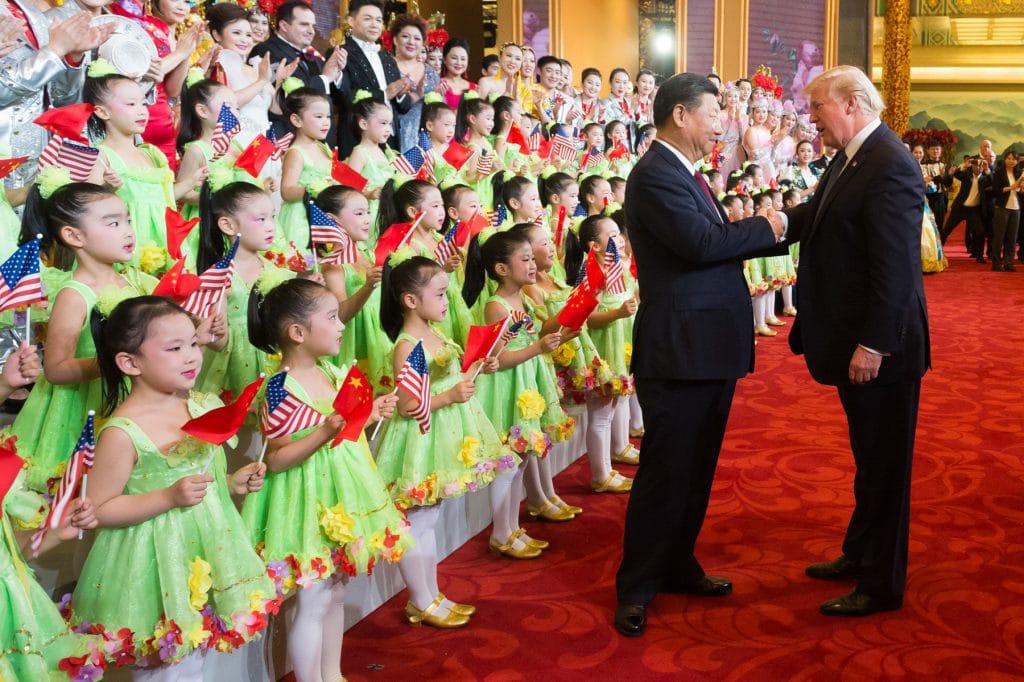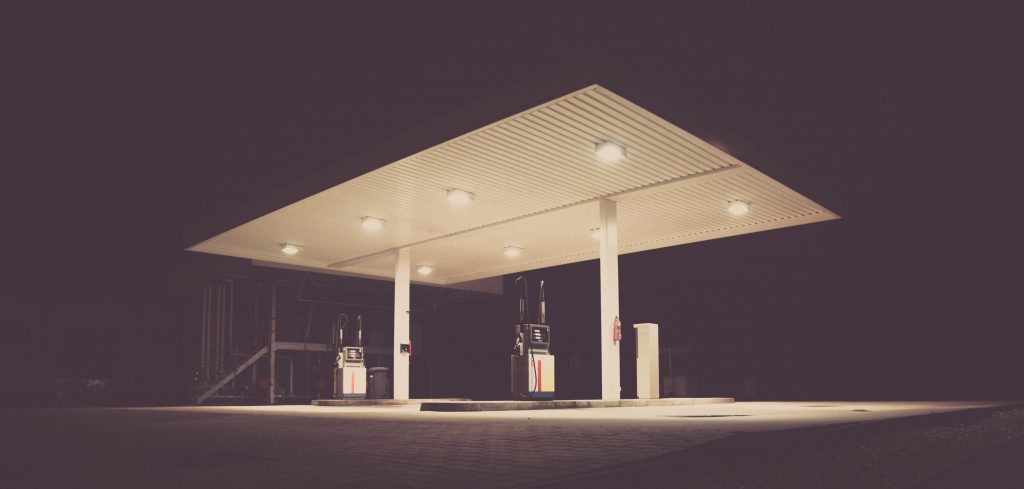Let’s try an experiment. For the next 30 seconds, run your mind over everything that you’re wearing, from your shirt to your shoes. Consider whatever you may have in your pocket – your smart phone perhaps. Think about the computer that you’re using, the car that sits in your drive, the food that you will eat this evening, the items in your garage. What about your hobbies? Your trainers or your golf clubs or your fishing rods or your books or e-book readers? Then ask one question: how many of these items or parts of them are made or grown or resourced in the UK?
My guess is that your answer will be pretty much same as mine. Just about everything we use or touch or eat or own comes wholly or partly from another country. And that’s why, on the most basic level, global politics ends at home. Decisions taken or events occurring thousands of miles away can impact us and our businesses in ways that we may be unprepared for.
Hard Brexit
No one knows if it’s going to happen or if or when Brexit – soft or hard – will take place. That includes your direct overseas customers and suppliers or those suppliers or customers you deal with indirectly – the suppliers of raw materials to your suppliers, the customers of the customers you supply.
What we do know is that sterling has already lost value against the euro and the US dollar, which are the currencies in which most world trade is conducted. Pundits and markets are saying hard Brexit will cause sterling to weaken again. So just about anything that we import is likely to go up in price, in terms of our pounds in the bank and that spells inflation.
On the day after 31st October, if that is when hard Brexit happens, no one knows whether goods will flow freely between the UK and rest of the EU, which accounts for half of all of our trade. So, on a practical level, businesses need to seek continuity. That could be stock piling supplies or inventory or shipping goods before 31/10, to beat the potential blockage.

A good customer or good supplier will be no worse on 31st October than he or she was the day before. And our needs to run our businesses will remain the same. The sensible way is to carry on with business despite politicians’ gyrations and jockeying for their careers. Make whatever private arrangements are necessary in the absence of any real leadership from government. Anyone reading this with experience in other countries where political ineptitude is endemic will understand this frame of mind well enough.
Will there be labour shortages after Brexit? No one knows the answer to this. But for sure, a good and valuable and employee, from wherever he or she comes, will be as good and valuable the day after Brexit as he or she was the day before. Maintaining continuity of employment is vital for you as it is for them.
There has been conjecture that business travel to the EU will be negatively affected by new and as yet unknown bureaucracy. Could this be the time to become more tech-savvy, perhaps using teleconferencing or e-commerce to sidestep the barriers to trade?
The watchword has to be “the show must go on.” “F*** business” is of no help to anyone.
Trump and China
Voices in the United States, and elsewhere, have been whinging about Chinese imports, currency manipulation and unfair Chinese trade practices for years. What has changed is that President Trump’s personal negotiating style, agenda and intervention has escalated US – China relations to a full blown dispute and this has impacts for everyone.
Think about that iPhone in your pocket. If import tariffs rise, the price of your next model could be a good deal higher than your last one. Unless of course the next iPhone you buy is assembled somewhere else than the US and supplied in a way that avoids US shores altogether.

China is the motor and the meter of the world’s economy. If its trade is impacted then it will in turn import less and may be forced to cut back on what it makes for export. But the US’s loss could be our gain. While the US is a huge market, so is Europe. The Chinese businessman or woman faced with staunched opportunities in North America may decide to boost trade with other territories, perhaps by incentivising new customers through price or other terms of business.
The Trump / China issue damages business confidence because no one knows where it will lead, in both political and trade terms. That causes markets – currencies, stocks, bonds, commodities, manufactured goods – to worry and to put off investment plans and developing new products and services. If a Chinese firm were, for example to withhold or withdraw investment in a plant in the UK, local suppliers right down to the neighbourhood sandwich shop would feel the effect. That is why Trump / China matters to SMEs in the UK.
Iran
It seems that the threat of war in the Middle East is a constant. There have been so many conflicts and so much civil turmoil since the end of World War II. We could look into the historical entrails of why that is but it will probably serve no useful purpose for our businesses. Our problem is a practical one: to try and understand the possible effects of the current threat of war involving Iran.
Iranian attacks on shipping in the Arabian Gulf threaten oil supplies. When you look at the map, Iran’s coastline covers the eastern Gulf coast from Kuwait and Iraq in the north to its border with Pakistan where the Gulf of Oman opens out into the Arabian sea. The geography illustrates how great the threat is, because potentially any vessel carrying oil in those waters could be targeted from the Iranian coast.
The risk for small businesses in the UK is that the price of oil starts to rise, reflecting the potential impact on supply. But the timing is doubly concerning because, as mentioned above, sterling is already weak and oil is priced in US dollars. A hike in the dollar price of crude oil and further weakening in sterling would sooner rather than later hit us at the pumps.

Every business with a transport bill for moving goods or people in the course of its business could be faced with a higher cost. Come the winter, when fuel demand is likely to burgeon, prices could rise even further.
In this weekend’s Financial Times Chris Tighe reported on a firm called Lanchester Wines, whose warehouse and distribution centre in the north east of England are heated using mine water. The water that is contained in disused mines contains heat which can be siphoned and harnessed as an alternative energy source. What is inspiring about this story is how a relatively small business has got to grips with its energy needs and come up with a sustainable and economic solution.
There’s a message there for all businesses. Vulnerability to events way beyond our shores brings risks and dependencies that we cannot control. But we can do our best to mitigate at least part of those risks. I highlighted at the beginning of this piece that no person or business is an island. So we owe it to ourselves, our employees, our suppliers, our customers and our communities to try and do the best we can to understand and navigate the obstacles that politics places in our paths, from wherever in the world such threats may arise.
